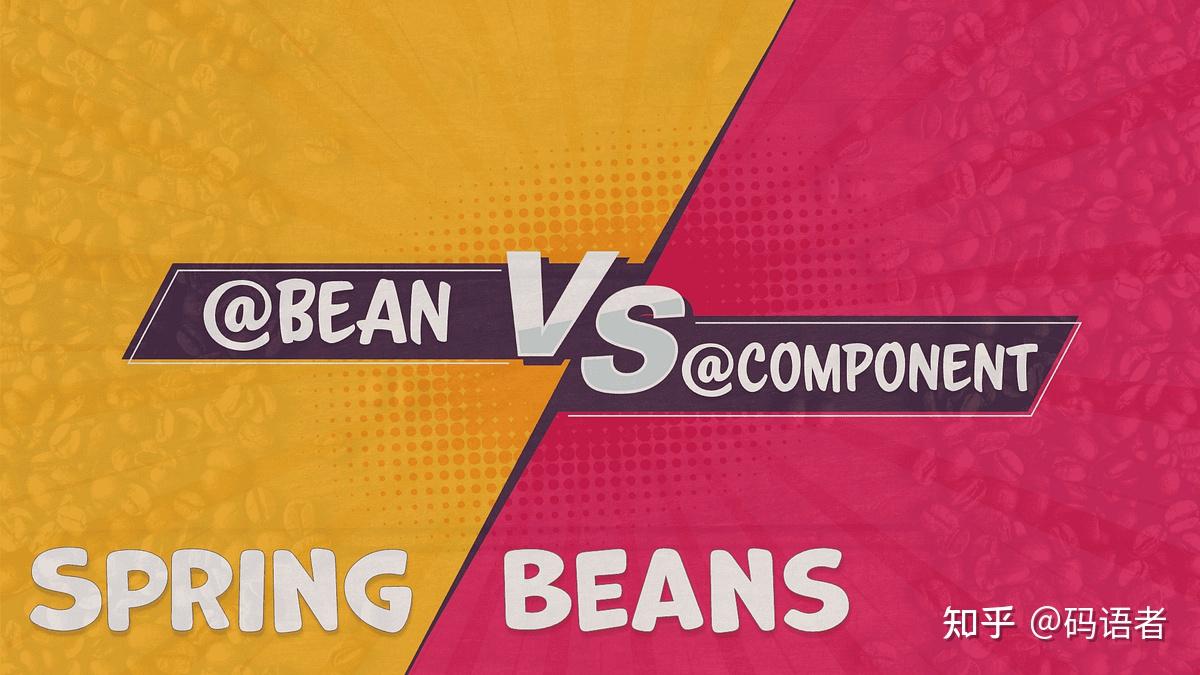- spring-data-jpa+spring+hibernate+druid配置
参考链接:http://doc.okbase.net/liuyitian/archive/109276.htmlhttp://my.oschina.net/u/1859292/blog/312188最新公司的web项目需要用到spring-data-jpa作为JPA的实现框架,同时使用阿里巴巴的开源数据库连接池druid。关于这两种框架的介绍我在这里就不多赘述。直接进入配置页面:spring的配置
- 服务注册和发现组件的详细对比与选型建议(详细版)
古龙飞扬
springcloudspring后端
服务注册和发现组件Eureka、Consul、ZooKeeper、Etcd和Nacos的区别与选型建议在微服务架构中,服务注册与发现是一个核心组件,它解决了服务实例的动态管理和自动发现的问题。目前,市场上存在多种服务注册与发现组件,其中Eureka、Consul、ZooKeeper、Etcd和Nacos较为常见。作为资深的软件架构师,本文将详细分析这些组件的区别,并提供选型建议。一、EurekaE
- 自己动手写编译器
JeffWoodNo.1
编译器hexcompilerfunctionbrancheclipse
这里不再仅仅是简单的记录一下……直接上手环境目标1:在elicpse平台上使用ant构建ANTLR目标2:在elicpse平台上使用antlride编写ANTLR语法编写实用的C解析器背景调查到底还需不需要自己动手写一个编译器这就是“工具哲学”所谓bootstrap的编译器构造方式。C的核心子集Appendix直接上手环境antlr-for-eclipse,即antlride-2.0-rc4版,在
- clickhouse分布式表插入数据不用带ON CLUSTER
时时刻刻看着自己的心
clickhouse分布式
向分布式表插入数据时,通常不需要使用ONCLUSTER,因为分布式表的写入操作会自动将数据分发到底层表(bm_online_user_count_part)的对应节点。但对于DDL(数据定义语句,例如ALTERTABLE)操作,在分布式环境中修改底层表时,建议使用ONCLUSTER,以确保所有相关节点上的表结构和数据同步。区分DDL和DMLDML(数据操作语句,例如INSERT)向分布式表插入数据
- Spring Data Jpa +alibaba druid+query dsl 实现多数据源
下海揽月
springdatajpajava
SpringDataJpa+alibabadruid+querydsl实现多数据源,主要通过配置来实现多个数据源的操作,无需动态切换1.maven配置org.springframework.bootspring-boot-starter-data-jpa2.3.12.RELEASEcom.alibabadruid-spring-boot-starter1.1.24com.querydslquery
- HCIE数通认证难不难?通过率如何?
揭秘华为顶级网络专家门槛风浪越大,鱼越贵——HCIE数通正是ICT领域那尾“金枪鱼”一、HCIE数通:华为认证体系的“金字塔尖”1.作为华为认证最高级别,HCIE-Datacom专为培养数据通信领域专家设计2.能力要求,掌握大中型复杂网络的规划、部署、运维及优化能力,支持云、存储、语音等融合业务3.技术深度,覆盖VXLAN、EVPN、SRv6、堆叠/集群等前沿技术,新增智简园区(iMasterNC
- Docker/Docker Hu国内可用镜像源列表(免费长期)
LTRchae
docker容器运维
解决docker拉取失败的问题Docker可用镜像源列表(7月8日更新-长期维护)_dockerhub国内镜像源列表-CSDN博客
- AI时代产品经理高薪密码!0经验转岗,月入27K的秘诀都在这!
“211计算机本硕,有2段学校项目经验,校招面了大厂AI产品经理岗,群面和专业面的时候挂了,怎么快速突击,提升AI产品专业能力呢?”“7年UI,被裁跳槽准备找产品工作了,上一家基本是半设计半产品,怎么包装过往经验,实现转岗?”“3年开发,每天写代码有点厌倦,想转产品经理,从0-1设计一款产品更有成就感,怎么快速上手产品工作?”这是上半年来咨询的几类同学的烦恼,近期求职市场些微回暖,产品经理岗位需求
- 【二分答案】-----【扑克牌】
float_com
二分答案算法二分答案贪心
扑克牌题目链接题目描述你有nnn种普通牌,第iii种牌的数量为cic_ici。另外你还有mmm张特殊的Joker牌。你可以使用以下两种方式来组成一套合法的牌组:不使用Joker,选择nnn种普通牌各一张;使用一张Joker,选择其余n−1n-1n−1种普通牌各一张(Joker可替代任意一种牌)。例如,当n=3n=3n=3时,一共有以下四种组合方式:{1,2,3}\{1,2,3\}{1,2,3}{J
- k8s深度讲解----宏观架构与集群之脑 - API Server 和 etcd
weixin_42587823
云原生kubernetes架构etcd
宏观架构与集群之脑-APIServer和etcd宏观架构:数据中心的操作系统在开始之前,让我们先建立一个高层视角。你可以将Kubernetes想象成一个管理整个数据中心的分布式操作系统。在这个操作系统中:控制平面(ControlPlane)就是它的“内核”,负责管理和决策。工作节点(WorkerNodes)就是它的“CPU和内存”,是真正运行应用程序的地方。我们常用的kubectl就是与这个“内核
- 从互联网电脑迁移Dify到内网部署Dify方法记录
一、在互联网电脑上准备迁移文件1.保存Docker镜像#获取所有Dify相关镜像(根据实际容器名调整)dockerps--filter"name=dify"--format"{{.Image}}"|sort-u>dify-images.list#保存镜像为.tar文件dockersave$(catdify-images.list)-odify-images.tar2.备份数据卷or直接复制路径(1
- docker 无法拉取镜像解决方法
Sandman6z
docker容器运维
目录我在omv中通过后台页面拉取alist镜像总是失败,原因千奇百怪今天再战终于解决首先,到dockerhub找镜像和wiki进入docker账号设置找到里面提示了登录操作和密码命令行中执行后会提示成功之后按需配置代理,同时检查自己的配置检查Docker代理配置查看当前Docker环境配置systemctlshowdocker--propertyEnvironment2.查看代理配置文件cat/e
- C++系列(十):面向对象编程终极指南!从封装到多态,彻底掌握类与对象的核心奥秘
傅里叶的耶
C++语言系列(教程+实战)c++类和对象
引言面向对象编程(OOP)是现代软件开发的核心范式,C++通过封装、继承和多态三大特性提供了强大的面向对象能力。这些特性使代码更易维护、扩展和复用,是构建复杂系统的基石。本章将深入探讨C++类和对象的方方面面,从基础封装到高级多态应用,帮助您掌握面向对象编程的精髓。最后,如果大家喜欢我的创作风格,请大家多多关注up主,你们的支持就是我创作最大的动力!如果各位观众老爷觉得我哪些地方需要改进,请一定在
- MCP Streamable HTTP 样例(qbit)
pythonagent
前言模型上下文协议(ModelContextProtocol,MCP),是由Anthropic推出的开源协议,旨在实现大语言模型与外部数据源和工具的集成,用来在大模型和数据源之间建立安全双向的连接。本文代码技术栈Python3.11.8FastMCP2.10.3MCP的传输机制StandardInput/Output(stdio)StreamableHTTPServer-SentEvents(SS
- Spring框架中的Component与Bean注解
SpringBoot中的@Bean与@ComponentSpring的@Component和@Bean注解的关键区别在于:@Bean注解可用于暴露您自己编写的JavaBeans,而@Component注解可用于暴露源代码由他人维护的JavaBeans。Sprin
- 2025 轻松部署 ERPNext
linux
在数字化转型浪潮不断推进的2025年,企业对高效、灵活的企业资源计划(ERP)系统需求日益增长。作为一款开源且功能全面的ERP系统,ERPNext以其模块化、易用性和强大的自定义能力,受到越来越多中小企业的青睐。然而,部署ERPNext仍然是许多企业信息化过程中的一大挑战。本文将介绍如何借助云平台实现快速、轻松、安全地部署ERPNext系统。什么是ERPNext?ERPNext是一个开源的ERP系
- C++ 工厂模式与抽象工厂:创建对象的灵活设计
海派程序猿
c++javajvm
C++工厂模式与抽象工厂:让对象“流水线”更优雅想象一下,你是一家玩具工厂的老板,主要生产两种玩具:小汽车和积木。最初,你的生产流程很简单,需要什么就直接用new创建什么://生产小汽车Car*myCar=newCar();//生产积木Block*myBlock=newBlock();简单粗暴,效率很高,就像直接从仓库里抓取零件组装一样。但问题也随之而来:耦合度高:生产代码直接依赖于具体的Car和
- 掌握变量命名与Python继承机制
掌握变量命名与Python继承机制背景简介在编程中,变量命名和继承是基础且重要的概念。良好的命名习惯可以提升代码的可读性,而继承则是一种代码复用的重要机制。本文将结合具体的书籍章节内容,深入解析变量命名规则和Python继承机制。变量命名规则变量命名是编程中最基础的部分,而正确的命名习惯能够帮助其他开发者(或未来的自己)更好地理解代码。根据书籍提供的内容,我们应当遵守以下规则:变量名只包含数字、下
- uiautomatorviewer工具在Android 9.0上的应用及优势
小馬锅
本文还有配套的精品资源,点击获取简介:uiautomatorviewer是AndroidSDK中的自动化测试和UI分析工具,特别适用于Android9.0版本。它支持扫描和分析应用UI控件,获取关键UI元素信息以编写自动化测试脚本。工具采用XPath定位技术,对于复杂布局中的UI元素精确定位尤为有效。同时,uiautomatorviewer与Appium自动化测试框架在功能上具有重叠,但各有优势。
- 从实践到自动化:现代运维管理的转型与挑战
运维
从实践到自动化:现代运维管理的转型与挑战在信息化快速发展的今天,企业IT系统的稳定性、可用性和安全性已成为衡量公司竞争力的重要因素之一。运维(IT运维)管理作为确保企业IT系统健康、稳定运行的关键职能,一直是企业技术团队关注的重点。然而,随着业务的复杂化、用户需求的变化以及技术的不断创新,传统的运维方式已逐渐无法满足企业对于高效、高可用、高安全的需求。如何提升运维效率、减少人为错误、提高运维系统的
- 使用Gemini实现AI驱动UI自动化测试
测试AI自动化测试
安装依赖pipinstallbrowser-uselangchain-google-genaipydantic编写代码#coding=utf-8importasyncioimportosfrombrowser_use.agent.serviceimportAgentfromlangchain_google_genaiimportChatGoogleGenerativeAIfrompydantici
- 华为电脑和手机一碰传_华为手机怎么一碰传连接电脑传输照片和文件
weixin_39630762
华为电脑和手机一碰传
现在咱们的手机随便拍一拍就有几百张照片,如何快速传至电脑,有一种黑科技,让互传文件不是事儿,相信不少的小人类也是为这些烦恼过,以往的传送方式都是是用数据线什么的,感觉比较繁琐,现在不用了,轻轻一“碰”就可以轻松搞定了,只要你的手机升级MagicUI3.0(也就是EMUI110.0)的系统,轻轻一“碰就可以开启智慧生活!一碰就能连接电脑的神技看这里1:在电脑上,打开WLAN和蓝牙,同时打开电脑管家,
- 华为手机手机与计算机传输,如何将华为手机的视频传到华为的电脑上?手机与电脑数据互传操作步骤...
人人保
华为手机手机与计算机传输
手机与电脑数据互传操作bai步骤如下:1、手机du通过原装USB数据线与电脑相连,待zhi电脑自行dao安装驱动,并确认驱动安装成功,如下图所示:注:如驱动未安装成功,可通过安装HiSuite软件进行辅助驱动安装或者通过选择端口模式中的帮助进行电脑驱动安装。(1)在手机端弹出的对话框选择“是,访问数据”(2)在手机下拉菜单中USB连接方式中选择设备文件管理(MTP)注:关于设备文件管理(MTP)和
- DMA技术与音频数据的存储和播放
曹小满2579
Android基础音视频Android
基本概念采样率:每秒采集的采样点次数。如480000HZ,就是我们常见的48KHZ采样点(Sample):每一个采样点代表一个时间点的声音幅度值。对于立体声,每个采样点包含了两个声道(左声道,右声道)的数据。帧:一帧就是一个时刻采集的数据,如果音频是立体声则会产生2个采样点,如果是更复杂的比如5.1,则会产生更多的采样点。例如PCM数据是48KHZ,16bit的,立体声,则一秒的PCM数据有48K
- 从零开始:构建支持上下文窗口的AI原生应用实战指南
AI天才研究院
AI人工智能与大数据AI-nativeai
从零开始:构建支持上下文窗口的AI原生应用实战指南关键词:大语言模型(LLM)、上下文窗口、AI原生应用、token管理、对话状态保持、向量检索、记忆压缩摘要:本文从AI原生应用的核心需求出发,系统讲解支持上下文窗口的应用构建全流程。通过解析上下文窗口的技术本质、关键挑战及解决方案,结合Python代码实战和真实场景案例,帮助开发者掌握从需求分析到落地部署的完整方法。内容涵盖上下文窗口管理策略、t
- 稀缺工具,效率拉满!
在办公场景中,图像和文档是最常接触的两类文件类型。日常工作中经常需要对多个文件进行批量处理,如图片转文档、PDF文件空白页删除、PDF转双层、图片校正等操作。这些重复性操作如果逐个处理不但效率极低下,还可能出现错误,而利用批量操作工具。可以快速完成大量文件的批量操作;分享一款高效的文档、图片批量操作工具:图档批处理助手v1.2.1;图档批处理助手是一款专注于高效处理文档与图像批任务的轻量级工具,软
- RK35xx cpu无法调频的可能原因
RK35xxcpu无法调频的可能原因1、开发环境2、问题描述3、问题解析3.1收集log信息3.2分析问题4、验证5、结论1、开发环境芯片型号:rk3568kernel版本:linux4.192、问题描述用户想动态调控CPU的频率,正常来说,在系统目录/sys/devices/system/cpu/cpu0/cpufreq/下是可以进行动态调频的;不正常的情况下就是没有/sys/devices/s
- 【图像去噪】论文精读:Noise2Self: Blind Denoising by Self-Supervision(N2S)
十小大
计算机视觉深度学习图像处理图像去噪人工智能论文阅读论文笔记
请先看【专栏介绍文章】:【图像去噪(ImageDenoising)】关于【图像去噪】专栏的相关说明,包含适配人群、专栏简介、专栏亮点、阅读方法、定价理由、品质承诺、关于更新、去噪概述、文章目录、资料汇总、问题汇总(更新中)文章目录前言Abstract1.Introduction2.RelatedWork3.CalibratingTraditionalModels3.1.Single-Cell3.2
- Ubuntu 与 Windows 实现文件夹共享
懒羊羊大王呀
LinuxwindowsLinuxSamba文件夹共享
Ubuntu20.04与Windows实现文件夹共享Linux中Samba的下载与配置sudoupdateapt#更新工具包sudoaptinstallsamba#下载Sambasudocp/etc/samba/smb.conf/etc/samba/smb.conf.bak#尽量备份一下sudovim/etc/samba/smb.conf#修改配置文件#添加以下内容,其中[shared]#共享文件
- 量子计算的数学地基:解码希尔伯特空间的魔法
牧之112
量子计算
在科技圈,“量子计算”早已不是陌生的名词。从谷歌的“量子霸权”实验到IBM的量子云服务,从药物研发的分子模拟到密码学的革命性突破,量子计算正以颠覆式的姿态重塑着人类对计算的认知。但在这些令人惊叹的应用背后,藏着一个关键的数学基石——希尔伯特空间(HilbertSpace)。它像一片隐形的“量子舞台”,支撑着量子比特的叠加、纠缠与计算,是理解量子计算本质绕不开的概念。一、从“普通空间”到“量子空间”
- 用MiddleGenIDE工具生成hibernate的POJO(根据数据表生成POJO类)
AdyZhang
POJOeclipseHibernateMiddleGenIDE
推荐:MiddlegenIDE插件, 是一个Eclipse 插件. 用它可以直接连接到数据库, 根据表按照一定的HIBERNATE规则作出BEAN和对应的XML ,用完后你可以手动删除它加载的JAR包和XML文件! 今天开始试着使用
- .9.png
Cb123456
android
“点九”是andriod平台的应用软件开发里的一种特殊的图片形式,文件扩展名为:.9.png
智能手机中有自动横屏的功能,同一幅界面会在随着手机(或平板电脑)中的方向传感器的参数不同而改变显示的方向,在界面改变方向后,界面上的图形会因为长宽的变化而产生拉伸,造成图形的失真变形。
我们都知道android平台有多种不同的分辨率,很多控件的切图文件在被放大拉伸后,边
- 算法的效率
天子之骄
算法效率复杂度最坏情况运行时间大O阶平均情况运行时间
算法的效率
效率是速度和空间消耗的度量。集中考虑程序的速度,也称运行时间或执行时间,用复杂度的阶(O)这一标准来衡量。空间的消耗或需求也可以用大O表示,而且它总是小于或等于时间需求。
以下是我的学习笔记:
1.求值与霍纳法则,即为秦九韶公式。
2.测定运行时间的最可靠方法是计数对运行时间有贡献的基本操作的执行次数。运行时间与这个计数成正比。
- java数据结构
何必如此
java数据结构
Java 数据结构
Java工具包提供了强大的数据结构。在Java中的数据结构主要包括以下几种接口和类:
枚举(Enumeration)
位集合(BitSet)
向量(Vector)
栈(Stack)
字典(Dictionary)
哈希表(Hashtable)
属性(Properties)
以上这些类是传统遗留的,在Java2中引入了一种新的框架-集合框架(Collect
- MybatisHelloWorld
3213213333332132
//测试入口TestMyBatis
package com.base.helloworld.test;
import java.io.IOException;
import org.apache.ibatis.io.Resources;
import org.apache.ibatis.session.SqlSession;
import org.apache.ibat
- Java|urlrewrite|URL重写|多个参数
7454103
javaxmlWeb工作
个人工作经验! 如有不当之处,敬请指点
1.0 web -info 目录下建立 urlrewrite.xml 文件 类似如下:
<?xml version="1.0" encoding="UTF-8" ?>
<!DOCTYPE u
- 达梦数据库+ibatis
darkranger
sqlmysqlibatisSQL Server
--插入数据方面
如果您需要数据库自增...
那么在插入的时候不需要指定自增列.
如果想自己指定ID列的值, 那么要设置
set identity_insert 数据库名.模式名.表名;
----然后插入数据;
example:
create table zhabei.test(
id bigint identity(1,1) primary key,
nam
- XML 解析 四种方式
aijuans
android
XML现在已经成为一种通用的数据交换格式,平台的无关性使得很多场合都需要用到XML。本文将详细介绍用Java解析XML的四种方法。
XML现在已经成为一种通用的数据交换格式,它的平台无关性,语言无关性,系统无关性,给数据集成与交互带来了极大的方便。对于XML本身的语法知识与技术细节,需要阅读相关的技术文献,这里面包括的内容有DOM(Document Object
- spring中配置文件占位符的使用
avords
1.类
<?xml version="1.0" encoding="UTF-8"?><!DOCTYPE beans PUBLIC "-//SPRING//DTD BEAN//EN" "http://www.springframework.o
- 前端工程化-公共模块的依赖和常用的工作流
bee1314
webpack
题记: 一个人的项目,还有工程化的问题嘛? 我们在推进模块化和组件化的过程中,肯定会不断的沉淀出我们项目的模块和组件。对于这些沉淀出的模块和组件怎么管理?另外怎么依赖也是个问题? 你真的想这样嘛? var BreadCrumb = require(‘../../../../uikit/breadcrumb’); //真心ugly。
- 上司说「看你每天准时下班就知道你工作量不饱和」,该如何回应?
bijian1013
项目管理沟通IT职业规划
问题:上司说「看你每天准时下班就知道你工作量不饱和」,如何回应
正常下班时间6点,只要是6点半前下班的,上司都认为没有加班。
Eno-Bea回答,注重感受,不一定是别人的
虽然我不知道你具体从事什么工作与职业,但是我大概猜测,你是从事一项不太容易出现阶段性成果的工作
- TortoiseSVN,过滤文件
征客丶
SVN
环境:
TortoiseSVN 1.8
配置:
在文件夹空白处右键
选择 TortoiseSVN -> Settings
在 Global ignote pattern 中添加要过滤的文件:
多类型用英文空格分开
*name : 过滤所有名称为 name 的文件或文件夹
*.name : 过滤所有后缀为 name 的文件或文件夹
--------
- 【Flume二】HDFS sink细说
bit1129
Flume
1. Flume配置
a1.sources=r1
a1.channels=c1
a1.sinks=k1
###Flume负责启动44444端口
a1.sources.r1.type=avro
a1.sources.r1.bind=0.0.0.0
a1.sources.r1.port=44444
a1.sources.r1.chan
- The Eight Myths of Erlang Performance
bookjovi
erlang
erlang有一篇guide很有意思: http://www.erlang.org/doc/efficiency_guide
里面有个The Eight Myths of Erlang Performance: http://www.erlang.org/doc/efficiency_guide/myths.html
Myth: Funs are sl
- java多线程网络传输文件(非同步)-2008-08-17
ljy325
java多线程socket
利用 Socket 套接字进行面向连接通信的编程。客户端读取本地文件并发送;服务器接收文件并保存到本地文件系统中。
使用说明:请将TransferClient, TransferServer, TempFile三个类编译,他们的类包是FileServer.
客户端:
修改TransferClient: serPort, serIP, filePath, blockNum,的值来符合您机器的系
- 读《研磨设计模式》-代码笔记-模板方法模式
bylijinnan
java设计模式
声明: 本文只为方便我个人查阅和理解,详细的分析以及源代码请移步 原作者的博客http://chjavach.iteye.com/
import java.sql.Connection;
import java.sql.DriverManager;
import java.sql.PreparedStatement;
import java.sql.ResultSet;
- 配置心得
chenyu19891124
配置
时间就这样不知不觉的走过了一个春夏秋冬,转眼间来公司已经一年了,感觉时间过的很快,时间老人总是这样不停走,从来没停歇过。
作为一名新手的配置管理员,刚开始真的是对配置管理是一点不懂,就只听说咱们公司配置主要是负责升级,而具体该怎么做却一点都不了解。经过老员工的一点点讲解,慢慢的对配置有了初步了解,对自己所在的岗位也慢慢的了解。
做了一年的配置管理给自总结下:
1.改变
从一个以前对配置毫无
- 对“带条件选择的并行汇聚路由问题”的再思考
comsci
算法工作软件测试嵌入式领域模型
2008年上半年,我在设计并开发基于”JWFD流程系统“的商业化改进型引擎的时候,由于采用了新的嵌入式公式模块而导致出现“带条件选择的并行汇聚路由问题”(请参考2009-02-27博文),当时对这个问题的解决办法是采用基于拓扑结构的处理思想,对汇聚点的实际前驱分支节点通过算法预测出来,然后进行处理,简单的说就是找到造成这个汇聚模型的分支起点,对这个起始分支节点实际走的路径数进行计算,然后把这个实际
- Oracle 10g 的clusterware 32位 下载地址
daizj
oracle
Oracle 10g 的clusterware 32位 下载地址
http://pan.baidu.com/share/link?shareid=531580&uk=421021908
http://pan.baidu.com/share/link?shareid=137223&uk=321552738
http://pan.baidu.com/share/l
- 非常好的介绍:Linux定时执行工具cron
dongwei_6688
linux
Linux经过十多年的发展,很多用户都很了解Linux了,这里介绍一下Linux下cron的理解,和大家讨论讨论。cron是一个Linux 定时执行工具,可以在无需人工干预的情况下运行作业,本文档不讲cron实现原理,主要讲一下Linux定时执行工具cron的具体使用及简单介绍。
新增调度任务推荐使用crontab -e命令添加自定义的任务(编辑的是/var/spool/cron下对应用户的cr
- Yii assets目录生成及修改
dcj3sjt126com
yii
assets的作用是方便模块化,插件化的,一般来说出于安全原因不允许通过url访问protected下面的文件,但是我们又希望将module单独出来,所以需要使用发布,即将一个目录下的文件复制一份到assets下面方便通过url访问。
assets设置对应的方法位置 \framework\web\CAssetManager.php
assets配置方法 在m
- mac工作软件推荐
dcj3sjt126com
mac
mac上的Terminal + bash + screen组合现在已经非常好用了,但是还是经不起iterm+zsh+tmux的冲击。在同事的强烈推荐下,趁着升级mac系统的机会,顺便也切换到iterm+zsh+tmux的环境下了。
我为什么要要iterm2
切换过来也是脑袋一热的冲动,我也调查过一些资料,看了下iterm的一些优点:
* 兼容性好,远程服务器 vi 什么的低版本能很好兼
- Memcached(三)、封装Memcached和Ehcache
frank1234
memcachedehcachespring ioc
本文对Ehcache和Memcached进行了简单的封装,这样对于客户端程序无需了解ehcache和memcached的差异,仅需要配置缓存的Provider类就可以在二者之间进行切换,Provider实现类通过Spring IoC注入。
cache.xml
<?xml version="1.0" encoding="UTF-8"?>
- Remove Duplicates from Sorted List II
hcx2013
remove
Given a sorted linked list, delete all nodes that have duplicate numbers, leaving only distinct numbers from the original list.
For example,Given 1->2->3->3->4->4->5,
- Spring4新特性——注解、脚本、任务、MVC等其他特性改进
jinnianshilongnian
spring4
Spring4新特性——泛型限定式依赖注入
Spring4新特性——核心容器的其他改进
Spring4新特性——Web开发的增强
Spring4新特性——集成Bean Validation 1.1(JSR-349)到SpringMVC
Spring4新特性——Groovy Bean定义DSL
Spring4新特性——更好的Java泛型操作API
Spring4新
- MySQL安装文档
liyong0802
mysql
工作中用到的MySQL可能安装在两种操作系统中,即Windows系统和Linux系统。以Linux系统中情况居多。
安装在Windows系统时与其它Windows应用程序相同按照安装向导一直下一步就即,这里就不具体介绍,本文档只介绍Linux系统下MySQL的安装步骤。
Linux系统下安装MySQL分为三种:RPM包安装、二进制包安装和源码包安装。二
- 使用VS2010构建HotSpot工程
p2p2500
HotSpotOpenJDKVS2010
1. 下载OpenJDK7的源码:
http://download.java.net/openjdk/jdk7
http://download.java.net/openjdk/
2. 环境配置
▶
- Oracle实用功能之分组后列合并
seandeng888
oracle分组实用功能合并
1 实例解析
由于业务需求需要对表中的数据进行分组后进行合并的处理,鉴于Oracle10g没有现成的函数实现该功能,且该功能如若用JAVA代码实现会比较复杂,因此,特将SQL语言的实现方式分享出来,希望对大家有所帮助。如下:
表test 数据如下:
ID,SUBJECTCODE,DIMCODE,VALUE
1&nbs
- Java定时任务注解方式实现
tuoni
javaspringjvmxmljni
Spring 注解的定时任务,有如下两种方式:
第一种:
<?xml version="1.0" encoding="UTF-8"?>
<beans xmlns="http://www.springframework.org/schema/beans"
xmlns:xsi="http
- 11大Java开源中文分词器的使用方法和分词效果对比
yangshangchuan
word分词器ansj分词器Stanford分词器FudanNLP分词器HanLP分词器
本文的目标有两个:
1、学会使用11大Java开源中文分词器
2、对比分析11大Java开源中文分词器的分词效果
本文给出了11大Java开源中文分词的使用方法以及分词结果对比代码,至于效果哪个好,那要用的人结合自己的应用场景自己来判断。
11大Java开源中文分词器,不同的分词器有不同的用法,定义的接口也不一样,我们先定义一个统一的接口:
/**
* 获取文本的所有分词结果, 对比